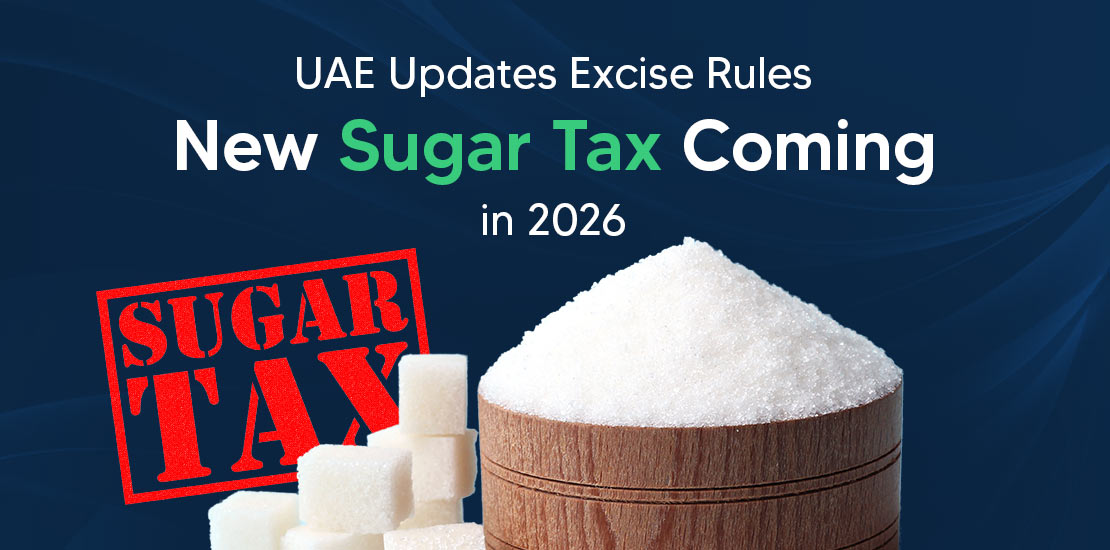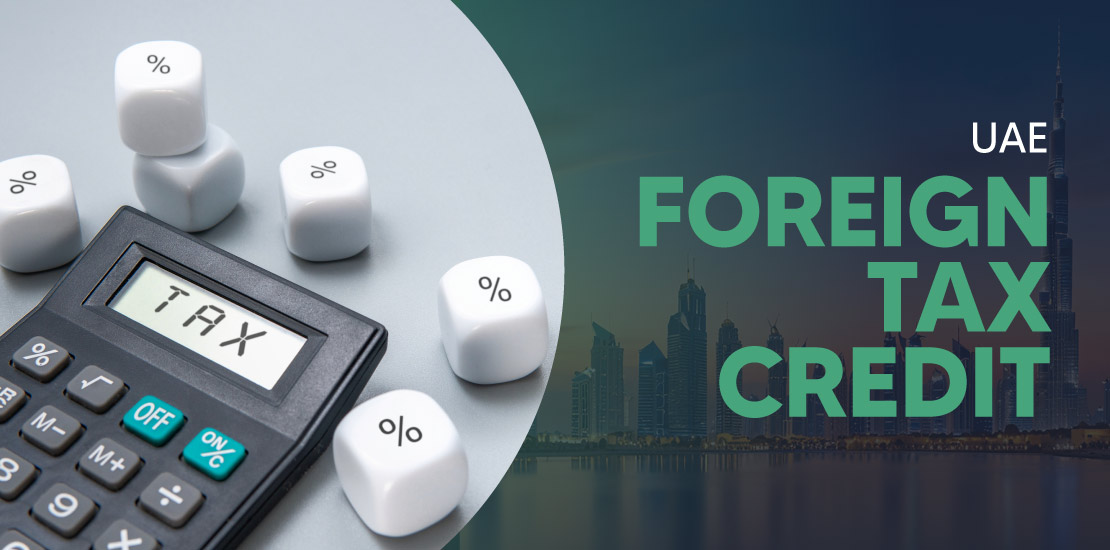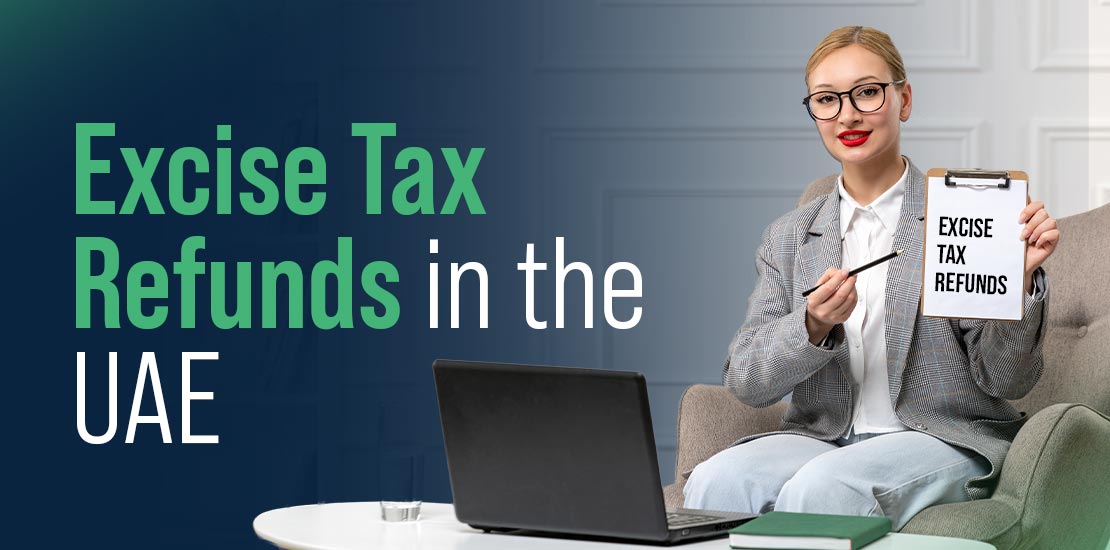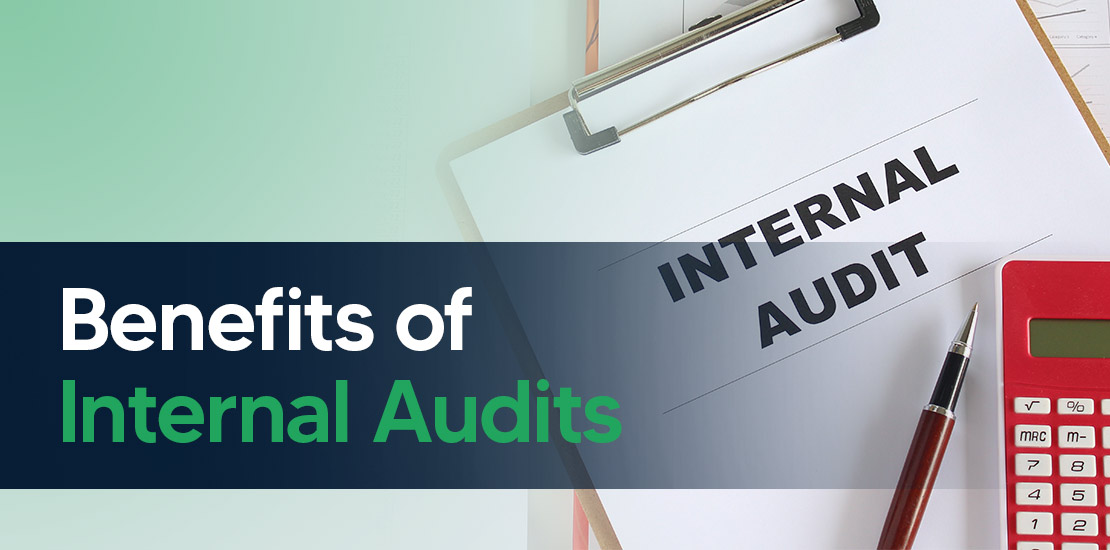In a major move towards promoting healthier lifestyles, the UAE government has approved a new excise tax policy on sweetened drinks, shifting from a flat-rate system to a tiered, sugar-based model. This announcement, made in early November 2025, aligns with the UAE’s ongoing public health goals and its commitment to maintaining a transparent and progressive tax environment.
So, let’s break down what this new policy means for businesses and consumers in the UAE.
What’s New in the Excise Tax Policy in UAE?
Previously, all sweetened beverages (regardless of their sugar content) were subject to a flat 50% excise tax under the UAE Excise Tax Law (Federal Decree-Law No. 7 of 2017). This meant that both high-sugar and low-sugar drinks were taxed equally.
Under the new tiered volumetric model, which is set to take effect from 1 January 2026, the excise tax will now be determined by the sugar concentration in the beverage, measured in grams per 100ml. The higher the sugar content, the higher the tax rate.
This model makes the system fairer and more health-focused, encouraging both consumers and manufacturers to make better dietary choices.
For instance, a beverage containing 9g of sugar per 100ml will fall under the “high-sugar” tier and be taxed at the highest rate, while one with 3g per 100ml will be taxed at the lowest rate.
The New Tiered Sugar Tax Categories
Under the new excise tax structure, sweetened drinks will be classified into four tiers:
| Category | Sugar Content (per 100ml) | Tax Tier / Expected Rate |
|---|---|---|
| High-sugar drinks | 8g or more | Highest tax rate (above current 50%) |
| Moderate-sugar drinks | 5g – less than 8g | Medium tax rate |
| Low-sugar drinks | Less than 5g | Lowest tax rate |
| Artificially sweetened drinks | No added sugar, only artificial sweeteners | 0% excise tax |
In short:
- Drinks with less sugar will now cost less tax, giving companies an incentive to reformulate their products.
- Artificially sweetened or sugar-free beverages will not be taxed, promoting healthier alternatives.
- Drinks with only natural sugars (e.g., 100% fruit juice with no additives) will be fully exempt from excise tax.
What Counts as a “Sweetened Drink”?
Under the new framework, a “sweetened drink” refers to any beverage that has an added source of sugar or other sweeteners, whether they are natural or artificial.
This definition includes not only bottled and canned beverages but also concentrates, syrups, powders, gels, and drink mixes that are meant to be diluted or prepared for consumption.
Examples of products covered:
- Carbonated drinks like colas and flavoured sodas
- Energy drinks and sports drinks with added sugar
- Sweetened iced teas, flavoured waters, and juices
- Instant drink powders or syrups used to make sugary beverages
Even if a drink contains natural sugars along with added sweeteners, it will fall under the excise tax scope. However, drinks that contain only natural sugar from fruits or vegetables, without any added sweeteners, will be excluded.
Exemptions from the New Excise Tax
Certain beverages are specifically excluded from the new Sweetened Drink definition and tiered model:
- Energy Drinks: These remain subject to the existing, separate 100% Excise Tax calculation.
- 100% Natural Juices: Juices made of 100% natural fruit or vegetable content with no added sugar or other sweeteners.
- Dairy Products: Milk, dairy, and related products.
- Infant Products: Baby formula, follow-up formula, or baby food.
- Special-Use Beverages: Beverages and concentrates intended for special dietary or medical uses.
- Non-Commercial & Restaurant Preparations: Drinks prepared by individuals for personal, non-commercial use, or drinks prepared in restaurants and similar places that are served in an open container for direct consumption (i.e., not pre-packaged for sale).
Why This Change?
The shift to a tiered model serves several important goals:
- Encouraging Healthier Habits: With obesity and diabetes rates rising globally, the UAE’s sugar tax policy aims to discourage the overconsumption of sugary drinks and encourage healthier options.
- Promoting Product Reformulation: Beverage manufacturers now have a strong motivation to reduce sugar levels in their products to qualify for lower tax tiers.
- Aligning with Global Standards: Countries like the UK, Mexico, and Saudi Arabia have already adopted similar sugar tax systems, and the UAE’s move reflects its alignment with international health and taxation practices.
- Supporting Sustainable Taxation: A tiered approach ensures fair taxation, where the tax burden is proportional to the sugar level, not just the product category.
What UAE Businesses Need to Do?
The Federal Tax Authority (FTA) has advised all taxable persons (producers, importers, and distributors of sweetened drinks) to start preparing early. Here’s what that involves:
- Assess Product Formulas: Review your beverage ingredients to determine total sugar content, including natural, added, and other sweeteners.
- Obtain Laboratory Certification: Businesses must provide a lab report from an FTA-approved UAE laboratory showing the sugar composition. The Ministry of Industry and Advanced Technology (MOIAT) will soon publish a list of accredited labs for testing and certification.
- Update Excise Registration: Once the policy takes effect, all sweetened drinks must be registered or re-registered on the FTA’s Excise Goods portal, with the lab report as supporting documentation.
- Review Pricing and Labels: Update your pricing structure and product labelling to reflect new tax rates and sugar content disclosures.
- Plan Inventory Management: Transitional rules will apply to prevent stockpiling products before 1 January 2026 for tax advantages.
- Stay Compliant: In the absence of a lab report, the FTA will automatically classify a beverage under the high-sugar category, until proper documentation is submitted, meaning higher taxes by default.
Talk to Experts at Shuraa Tax
The UAE’s new tiered excise tax on sweetened drinks marks a smart step toward healthier consumption habits and fairer taxation. For businesses, this means staying informed, compliant, and ready to adapt to the upcoming rules by January 2026.
If you’re unsure how these changes affect your business (whether in excise tax registration, corporate tax compliance, or VAT reporting), Shuraa Tax is here to help. Our experts will guide you through every step, from understanding new FTA requirements to filing accurate tax reports, so you stay compliant and confident in your operations.
Stay compliant. Stay prepared. Reach out to Shuraa Tax today and let’s make your transition to the new excise tax regime smooth and stress-free.
Frequently Asked Questions
1. What is the new excise tax policy on sweetened drinks in the UAE?
The UAE has approved a new tiered excise tax system for sweetened drinks, effective 1 January 2026. Instead of a flat 50% rate, taxes will now depend on the sugar content per 100ml — higher sugar means higher tax.
2. How will the sugar levels be classified under the new policy?
Drinks will be divided into four categories:
- High-sugar: 8g or more per 100ml
- Moderate-sugar: 5g to less than 8g per 100ml
- Low-sugar: Less than 5g per 100ml
- Artificially sweetened only: 0% excise tax
3. Which drinks are exempt from the new excise tax?
Drinks containing only natural sugars with no added sweeteners are exempt. Examples include 100% natural fruit or vegetable juices, milk and dairy drinks, baby formula, and medical or dietary beverages.
4. When will the new excise tax in the UAE come into effect?
The new tiered excise tax model will take effect from January 1, 2026, giving businesses time to adjust their formulations, pricing, and compliance processes.
5. Are carbonated drinks still a separate tax category?
No. Under the new rules, Carbonated Drinks will be abolished as a separate category of Excise Good and will instead be taxed based on their sugar content and classification as Sweetened Drinks.
6. What must businesses provide to the FTA to comply with the UAE new tax?
Businesses must register their products and provide a lab report from a UAE-accredited laboratory detailing whether the drink has added sugar, other sweeteners, or artificial sweeteners, and showing the total sugar content.













